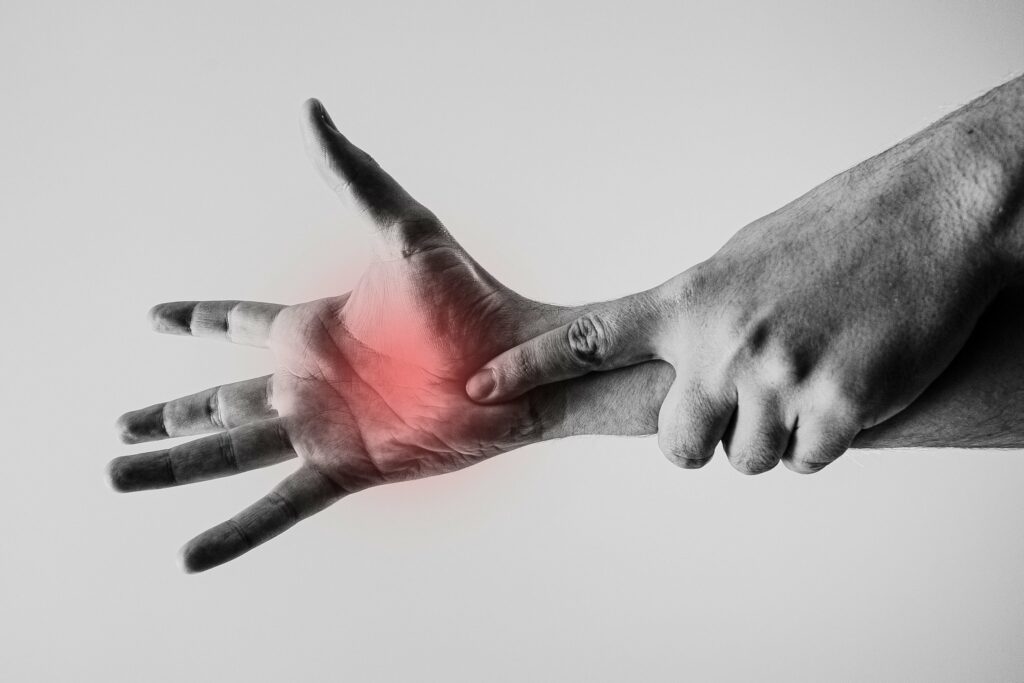Neuropathy Treatment Germantown, TN
What is Peripheral Neuropathy?
Peripheral neuropathy is often one of those conditions that you may have heard about, without really knowing fully what it is. It is useful to know a little something about it, however, as this can help you to work out whether you might have it yourself, and understand a little more about what can be done about it should you have it. In this blog post, we are going to therefore take you through all of the essentials about peripheral neuropathy, so by the end of it you should feel clued up on all that you need to know.
What Causes Peripheral Neuropathy?
So first of all – what exactly is peripheral neuropathy anyway? Essentially it is a kind of nerve damage that happens to nerves which are outside the brain and spinal cord area – which is why those nerves are referred to as peripheral. It is known to frequently cause feelings of weakness and it can also cause a significant amount of pain in many sufferers. You might also experience numbness, and this is very often experienced in the hands and feet most of all.
At times, peripheral neuropathy can go on to affect other functions and parts of the body: digestion, urination, circulation, and more.
What Are the Symptoms of Neuropathy?
Now that we have a general overview of what peripheral neuropathy is, we can start to dig down and look into some of the symptoms of the condition. Before delving into this, however, it can be important to understand a little more about nerves in general and how they usually work. Every nerve in the system has a function that is specific to it, so the symptoms that you are going to get will vary depending on the type of nerve that is affected.
You Have Three Kinds of Nerves That Might Be Affected
Sensory. These nerves receive sensation from the skin, which includes anything that you might feel – including temperature, pain, touch and vibration and so on.
Motor nerves are those which enable you to control movement of the body.
Autonomic nerves control functions in the body which are normally automatic, such as blood flow, sweating, heart rate, digestion and other similar functions.
So if you have peripheral neuropathy, you are going to get symptoms relating to which kind of nerve is affected. In general, however, you can also expect some particular symptoms such as the following:
- Numbness – this usually comes on quite gradually, and it can feel like a prickling sensation in the extremities which then gradually spreads throughout the body.
- Pain – this can be sharp and jabbing, throbbing pains, or even a feeling of burning.
- You might also feel extremely sensitive to touch.
If you are feeling pain when you would not normally feel pain, such as during activities that are usually painless for you, then that is often a sign of peripheral neuropathy.
- Lacking coordination or suddenly falling over without warning.
- Weakness in the muscles.
- Some people report a strange feeling: as though they are wearing gloves or socks when they are not.
If your motor nerves are affected, you might even experience paralysis – in part or the whole body.
If your autonomic nerves are affected, you might experience intolerance to heat, excessive sweating or an inability to sweat, bowel or digestive issues of all kinds, or sudden drops in blood pressure. That might also be accompanied by dizziness and fainting.
As you can see, there are a wide range of symptoms that can arise as a result of this condition, which is partly why it has traditionally been a difficult thing to diagnose and treat. You can also have it affect one nerve, two or more nerves in different areas, or many nerves at once, and it will differ depending on that as well.

Causes Of Peripheral Neuropathy
So what are some of the major and common causes of peripheral neuropathy? Nerve damage can be the result of many different conditions and situations, which is partly why this condition is so surprisingly common amongst people of all kinds and ages. However, there are some conditions in particular which will often lead to peripheral neuropathy. Let’s look at some of those right now.
So what are some of the major and common causes of peripheral neuropathy? Nerve damage can be the result of many different conditions and situations, which is partly why this condition is so surprisingly common amongst people of all kinds and ages. However, there are some conditions in particular which will often lead to peripheral neuropathy. Let’s look at some of those right now.
- Autoimmune diseases. Sjogren’s syndrome, lupus, rheumatoid arthritis, Guillain-Barre syndrome, chronic inflammatory demyelinating polyneuropathy and vasculitis are all autoimmune diseases which can lead to peripheral neuropathy.
- Diabetes can also lead to nerve damage, and in fact this is the number one cause of peripheral neuropathy in the world. More than half of the people with diabetes will develop some form of peripheral neuropathy in their life.
- Infections of many kinds can also lead to this condition. That can include infections of the virus or bacteria, such as Lyme’s disease, shingles, hepatitis B and C, leprosy and HIV.
- Inherited disorders like Charcot-Marie-Tooth disease are inherited forms of neuropathy which can occur in rare cases.
- Tumors can lead to all sorts of issues, as we all know, and one of the most common of these is peripheral neuropathy. Tumors developing or pressing on nerves can easily lead to nerve damage in this way.
- Bone marrow disorders are also a common cause of peripheral neuropathy, along with bone cancer.
A range of other diseases can lead to this condition too, such as kidney disease and liver disease.
You are more likely to develop peripheral neuropathy if you are an alcoholic, or you are exposed to certain poisons such as lead or mercury. Chemotherapy medication can also increase your chances of peripheral neuropathy, as can injury from motor accidents and other such unfortunate events. Also, vitamin deficiencies can make this more likely too.

Neuropathy Treatment

We see success with our patients because we employ a four-part regimen, all of which can be done from home, alongside the treatments provided in our clinics.
Designed specifically for neuropathy, this diet considers a natural vasodilator—nitric oxide— which opens up the blood vessels. You need this to keep the blood flowing in those tiny little blood vessels that nourish the nerves.
However, increased amounts of sugars and starches actually decrease the efficiency of nitric oxide, and the typical American diet is full of these high sugar and starchy foods that lead to decreased blood flow to those tiny little blood vessels that your nerves rely on for nourishment. Sugars and starches can also create inflammation in the body, which further acts to decrease blood flow.
The Launch Wellness nutritional protocol is easy-to-follow and fun—and our patients love it. With our added natural supplements to help the body heal and produce more nitric oxide, the body’s capacity for healing is elevated even further.
This safe, effective, and FDA-approved use of near-infrared light stimulates a process called angiogenesis, the creation of new blood vessels, specifically around a damaged area so it can start to heal.
Light therapy can reduce pain, improve immune function, accelerate wound healing, and speed up the healing of fractures. It also increases the production of DNA and collagen—the building blocks of tissues—and it increases the activity of fibroblasts, which are the cells that comprise our connective tissue. All of these things are necessary for wounds and injuries to heal so your blood can properly transport nutrients and heal any areas of the body affected by neuropathy.
When nerves get sick and start dying off, they forget how to work properly. We rehabilitate them, and they re-learn how to function properly with the support of a 21st-century technology that’s successfully used in all the Cancer Treatment Centers of America for nerve damage. Rather than just manage pain, this digital electro-therapeutic stimulator actually re-educates nerves damaged by neuropathy—right from your own home.
